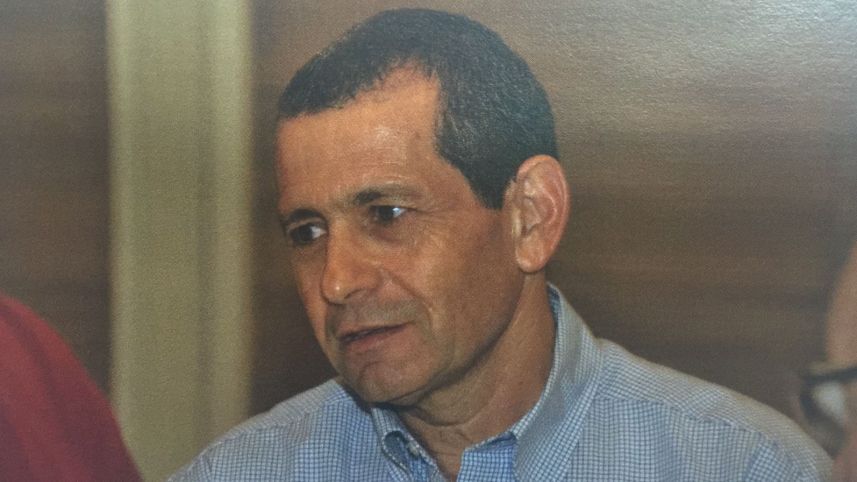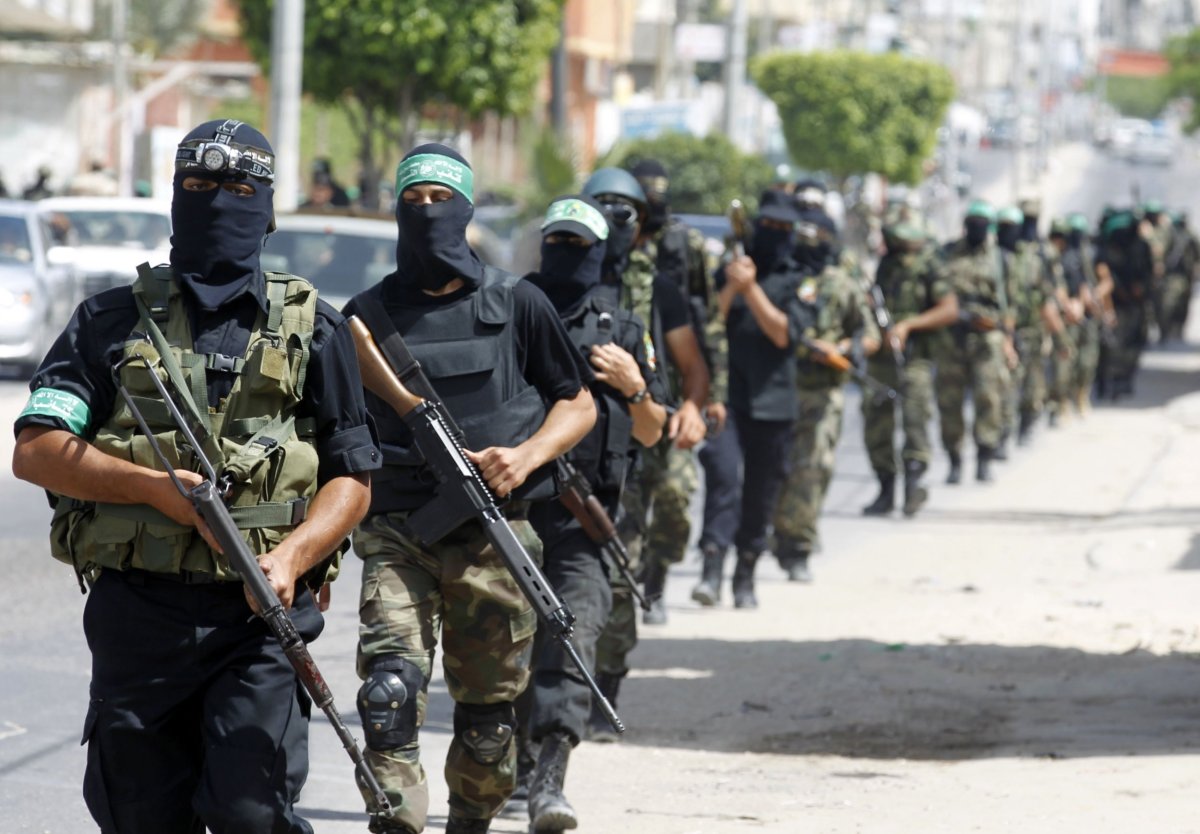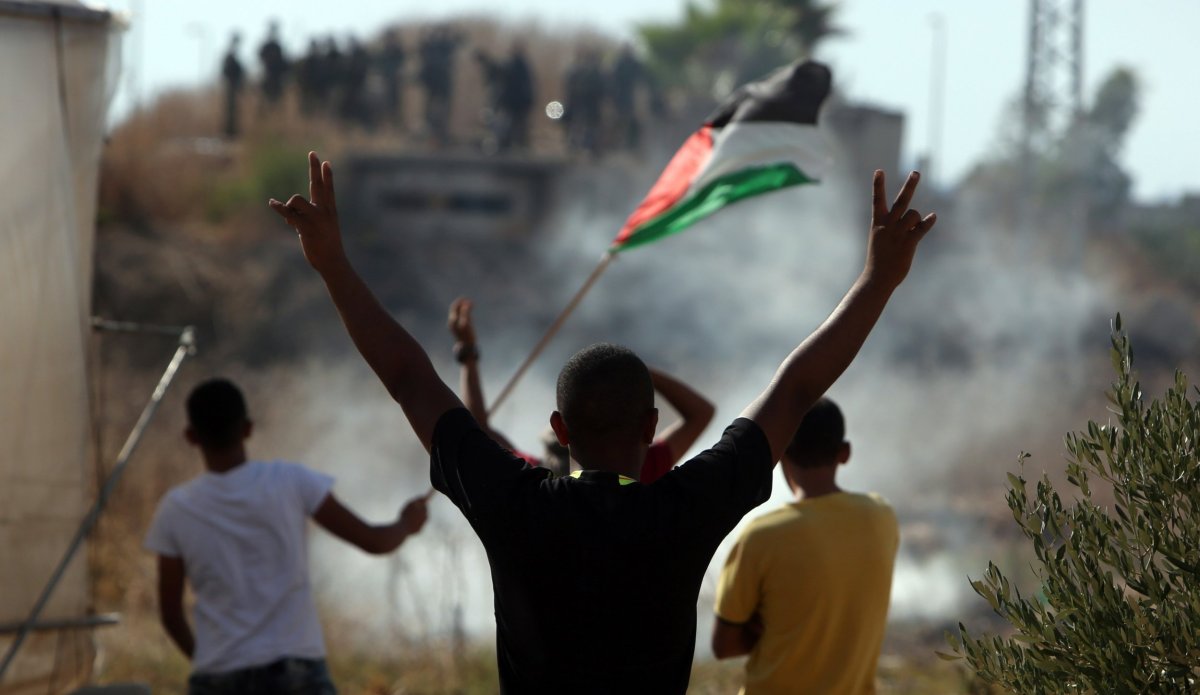
On February 11, Israeli Prime Minister Benjamin Netanyahu named Nadav Argaman as the new chief of the secretive domestic Shin Bet, or Shabak, security service, Israel's equivalent of the U.S.'s FBI or Britain's MI5.
Argaman, 55, was left as the sole contender from within the organization, having acted as deputy to the outgoing chief Yoram Cohen. The other deputy to Cohen, Roni Alsheikh, was appointed to the role of chief of the Israeli Police and will take over from Cohen in May.
Argaman, a secular Jew, served as the Shin Bet's point man in the U.S. for three years prior to becoming Cohen's deputy and, while his appointment marks a sense of stability, it also heralds a change for the agency. While all but two of the domestic intelligence chiefs have been selected from the Arab interrogation division in the past 30 years, because of the importance placed upon preventing attacks by Palestinians, Argaman spent more than 20 years on the operational side of the service.
He served as the head of the Shin Bet's operational division, which deals with counter-extremism, counter-espionage and even assassinations, between 2003 and 2007 in the midst of the Second Palestinian Intifada, or uprising.
Now that Argaman has been selected, what are the main challenges that he will encounter in his tenure?
Gaza Strip
Following the conclusion of the 2014 Gaza conflict, analysts noted 2015 as "Gaza's quietest year," but this lull has allowed Palestinian militant group Hamas to regroup and continue construction of its tunnel network, used for smuggling and surprise attacks, into Egypt and Israel.
Another round of violence may be on the cards if such construction continues into Israeli border communities and it is Argaman's priority to ensure that Israel can be ready for such a conflict, says Ronen Bergman, senior military intelligence correspondent for Israel's biggest newspaper Yediot Ahronoth, calling it the "most important responsibility now on the shoulders" of any Israeli intelligence chief.
He must "enhance and maintain Israeli intelligence coverage over what is happening in Gaza," says Bergman. "One has to remember that Gaza is not under Israeli occupation or control. This is hostile country controlled by Hamas. An organization that is making a lot of effort to prevent Israeli intelligence infiltration into its ranks.
"So it's very, very hard but, taking into consideration the common belief that there is going to be another round of war between Israel and Hamas, Shin Bet has the responsibility to supply the intelligence in order to prepare for such a war," Bergman adds.
West Bank
The second predominant challenge facing Argaman's tenure is the West Bank, which Bergman says can be divided into three sub-issues. The first is to "maintain good security cooperation with the Palestinian Authority" while assessing the stability of the body that oversees the West Bank under Israel's military occupation and who may potentially replace Palestinian President Mahmoud Abbas.

Another key security challenge for the Shin Bet in the West Bank is the presence of Hamas cells, such as the one that was responsible for the murder of three Israeli teenagers hitchhiking in the West Bank in June 2014, an incident that sparked an escalation that resulted in the Gaza conflict. Under Argaman's leadership, the Shin Bet must "continue to subvert and disrupt Hamas activities" from plotting attacks in the territory.
The third most pressing issue for the Shin Bet is the wave of violent stabbing, shooting and car-ramming attacks against Israelis and Israeli settlers in the West Bank, says the Israeli security expert. The attacks have killed 28 Israelis while Israeli forces have killed 168 Palestinians, 111 of whom Israel says were attackers.
Israel says the attacks are inspired by the Palestinian leadership's incitement while the Palestinians say it is because of hopelessness under military occupation and concerns of the status quo at the Jerusalem holy site, known as the Temple Mount to Jews and the Haram Al-Sharif, or Noble Sanctuary, to Muslims.
Sinai
The third main challenge for Argaman and the security service is the Sinai Peninsula in Egypt, where an ISIS affiliate known as Sinai Province has established a presence, conducting attacks against Egyptian security forces and claiming the deadly Sinai plane crash that killed more than 200 people.
But this group also threatens Israel's southern border. "The Sinai Peninsula in the north was put under Shin Bet responsibility three years ago and 40 kilometers into Sinai is the responsibility of the Shin Bet," Bergman says. The security service must therefore conduct intelligence and covert operations that allow the Israeli military to prepare for cross-border attacks and infiltrations by the militant group.

ISIS Propaganda and Jewish Extremism
Aside from these three main security issues, there are some more that, while lower down on the agenda, will still preoccupy Argaman's agency's assets. The proliferation of Islamic State militant group (ISIS) propaganda in the territories and among Israel's Arab population has seen dozens of Palestinians join the radical Islamist group, and even an ISIS-inspired cell foiled in Israel's north. This number, which Arab Israeli community leaders consider small given that there are more than a million Arabs in Israel, has seen Israeli President Reuven Rivlin warn that ISIS is "already here" in Israel.
While all of these threats relate to the Arab population in the region, there is also risk from within: Jewish extremists. Right-wing religious fanatics who occupy East Jerusalem and the West Bank's Jewish settlements, defined as illegal in international law, have conducted attacks against Arabs that have widened tensions between Arabs and Jews in Israel and caused retaliatory attacks against Israeli targets in the territories.
The Duma attack last July, in which Jewish extremists firebombed the Dawabsha family home, killing an 18-month-old baby and his mother and father, is a prime example of how Jewish extremism can escalate the conflict. Another such instance was the burning alive of Palestinian teenager Mohammed Abu Khdeir in East Jerusalem in July 2014, another incident that lit the touchpaper for the escalation before the Gaza conflict. "One big challenge that Shin Bet has to deal with is Jewish terrorism. This is a very different topic, on a much smaller scale than Arab terrorism, but this could lead to horrendous developments if it is not stopped," Bergman concludes.
Uncommon Knowledge
Newsweek is committed to challenging conventional wisdom and finding connections in the search for common ground.
Newsweek is committed to challenging conventional wisdom and finding connections in the search for common ground.
About the writer
Jack is International Security and Terrorism Correspondent for Newsweek.
Email: j.moore@newsweek.com
Encrypted email: jfxm@protonmail.com
Available on Whatsapp, Signal, Wickr, Telegram, Viber.
Twitter: @JFXM
Instagram: Read more
To read how Newsweek uses AI as a newsroom tool, Click here.








